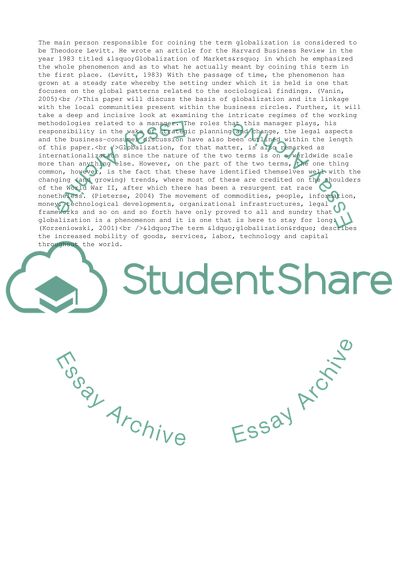Cite this document
(Management in Context Research Paper Example | Topics and Well Written Essays - 3500 words - 4, n.d.)
Management in Context Research Paper Example | Topics and Well Written Essays - 3500 words - 4. https://studentshare.org/management/1715683-management-in-context
Management in Context Research Paper Example | Topics and Well Written Essays - 3500 words - 4. https://studentshare.org/management/1715683-management-in-context
(Management in Context Research Paper Example | Topics and Well Written Essays - 3500 Words - 4)
Management in Context Research Paper Example | Topics and Well Written Essays - 3500 Words - 4. https://studentshare.org/management/1715683-management-in-context.
Management in Context Research Paper Example | Topics and Well Written Essays - 3500 Words - 4. https://studentshare.org/management/1715683-management-in-context.
“Management in Context Research Paper Example | Topics and Well Written Essays - 3500 Words - 4”. https://studentshare.org/management/1715683-management-in-context.


